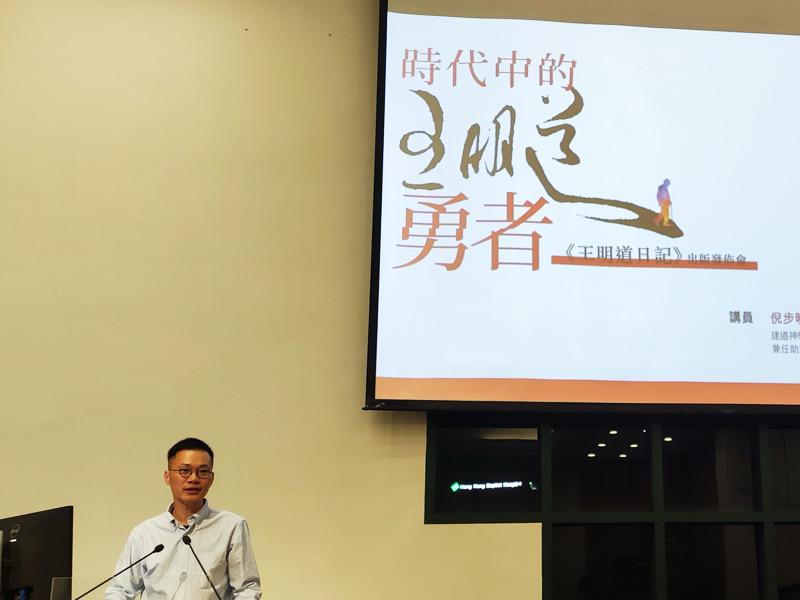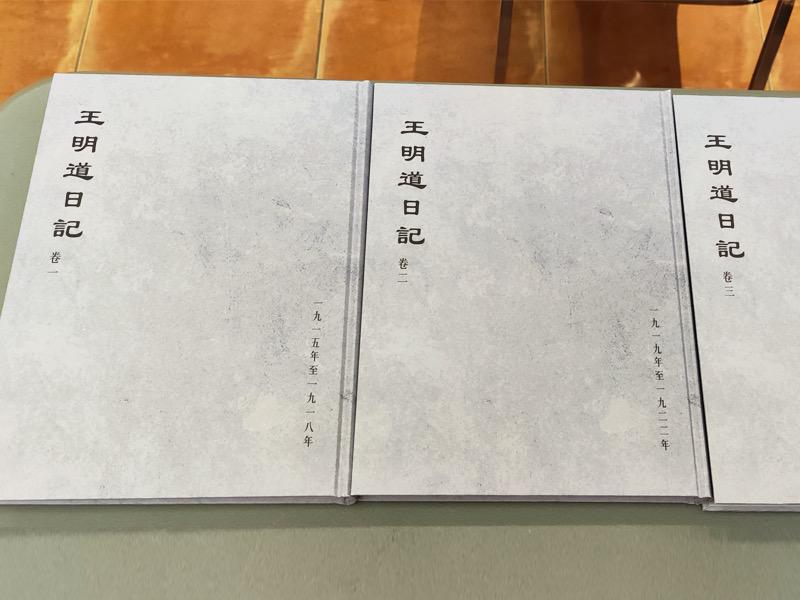A lecture in Hong Kong introduced the forthcoming book Wang Mingdao's Diaries on Monday, highlighting his unwavering faith, restorationist theology, and independent ministry in the 20th century.
On December 9, China Graduate School of Theology hosted a public lecture titled "A Hero of His Time: The Publication Launch of Wang Mingdao's Diaries." The event focused on "Faith Patterns of the Christian Tabernacle in Beijing through Wang Mingdao's Diaries," featuring Dr. Ni Buxiao, associate director of Christianity & Chinese Culture Research Centre and adjunct assistant professor at Alliance Bible Seminary, as the main speaker.
Dr. Ni highlighted that while previous understanding of Wang Mingdao largely came from his autobiography and his wife's memoirs, the newly published diaries provide unprecedented insights. These manuscripts, spanning forty years (1915-1955), were remarkably preserved and written without publication in mind, containing invaluable personal reflections and intimate details that serve as crucial primary sources for academic research. In 2014, Dr. Ni was fortunate to interview Wang's son, Wang Tianduo, and gain access to these original diaries. With the family's subsequent permission, the manuscripts are being now prepared for publication.
Wang Mingdao (1900-1991), a famous independent Chinese Protestant pastor and founder of the Christian Tabernacle in Beijing, was in prison for his faith from 1955 to 1980.
Wang's journey from personal tragedy to spiritual leadership began with his father's death during the Boxer Rebellion, shaping his later resolve against fear and compromise. His theological development, heavily influenced by his mentor who belonged to the Apostolic Faith Mission, led him to adopt what Dr. Ni termed a "restorationist" approach - advocating for a return to early church practices. This theological stance manifested distinctively in his interpretation of core doctrines, including an unusual leaning toward unitarianism despite his Fundamentalist identity.
This theological framework deeply influenced his ministry, beginning with home Bible studies in 1925. The gatherings grew organically, from initial meetings to crowds of hundreds, ultimately necessitating the establishment of the Christian Tabernacle in 1937. Alongside the church's physical growth, Wang established the Spiritual Food quarterly magazine as a platform for his teachings. His commitment to doctrinal purity and spiritual authenticity was evident in the rigorous three-to-four-year baptismal process he instituted. While this strict approach limited membership to 700-800 by the 1950s, it ensured a deeply committed congregation aligned with his vision of restored biblical Christianity.
Wang maintained church independence through self-governance and self-funding, though this brought economic and political challenges. He emphasized consistent preaching as key to church revival, rarely allowing guest speakers. In addition, his church operated with two offering boxes - one for operations and another for pastoral wages. Wang's diaries meticulously documented all financial details, from his personal income to the contents of both boxes. Like other church members, he regularly contributed to both funds, maintaining detailed records of all transactions throughout his ministry.
The diaries also reveal important nuances in Wang's relationships with Western missions and social engagement. Despite his emphasis on church independence, he maintained cordial relationships with Fundamentalist missionaries and occasionally preached at China Inland Mission stations. While prioritizing moral development over social services, his church actively engaged in poverty relief efforts.
Regarding politics, Dr. Ni noted that Wang initially showed optimism toward the new government, cooperating with church registration requirements. However, he steadfastly refused to join political Christian movements, maintaining church independence. This unwavering stance led to severe consequences: the Christian Tabernacle, which had served its congregation since 1937, was dissolved following his first arrest in August 1951. His final diary entry was dated August 6, 1955 - just two days before his second and more severe arrest in the early hours of August 8. The diaries capture his personal fear and anxiety during this period, yet remarkably, his last entries maintain the same careful handwriting that characterized his records since youth.
Rev. Dr. Song Jun, director of Chinese Culture Research Centre at China Graduate School of Theology, responded with an emphasis on the historical value of the diaries, offering a glimpse into the life of an ordinary individual navigating extraordinary circumstances. He argued that Wang's story exemplifies how seemingly ordinary people can become "heroes of their time" through steadfast faith in the face of adversity.
During the Q&A, attendees discussed Wang's legacy and relevance for contemporary Chinese house churches. Dr. Ni noted Wang's enduring influence as a symbol of uncompromising faith. Dr. Song compared Wang's stance to the Confessing Church in Nazi Germany, highlighting the power of "alternative choices" in times of political pressure. The discussion also touched upon the personal cost of Wang's convictions, particularly the loss of his son, Wang Tianduo, to atheism.
At the conclusion of the lecture, Rev. Chan Pui-Tak, founder of Virtue & Wisdom Link Ltd., shared the challenges encountered during the diary publication process. The team spent four years scanning and restoring over 4,000 pages of handwritten entries, with each page requiring careful treatment to ensure this precious historical document could be presented intact to the public. He expressed special gratitude to team members for their dedication to this monumental project.













